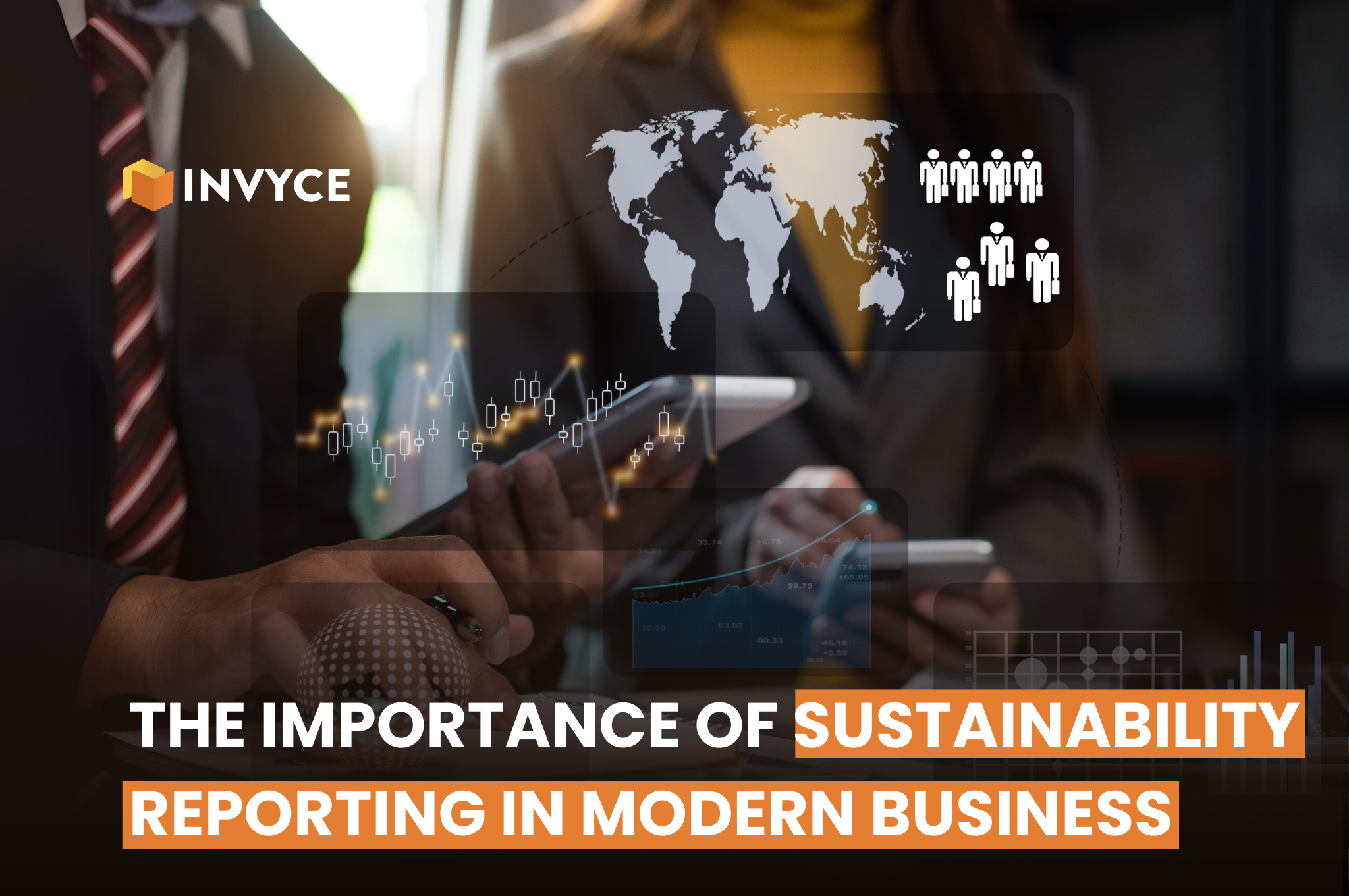08 Oct

With today’s fast-moving global market, sustainable practices are more important than ever. Customers, investors, and governments all want to know how businesses are impacting the environment and society. But it’s not enough to just claim you’re doing good-you need to show it. This is where sustainability reporting comes in. It’s a way to prove your commitment to environmental, social, and governance (ESG) goals while making your business more resilient for the future.
Let’s explore how sustainability reporting can transform your business and why it is essential for modern businesses to stay competitive.
1. Building Trust and Transparency
In the modern business world, transparency is no longer optional—it’s essential. Sustainability reporting provides a clear, structured way to show your company’s impact on the environment and society. By sharing both the successes and challenges of your ESG initiatives, your business creates trust among stakeholders. Customers, employees, and investors all appreciate honesty, especially when it comes to important social and environmental issues.When you show exactly how your business is working to improve its sustainability, you strengthen relationships with those who matter most. Regular updates and clear metrics in your reports provide a sense of accountability, showing that your company is committed to continuous progress.
2. Staying Ahead of Regulatory Requirements
Sustainability regulations are being implemented by governments across the globe. Businesses are being asked to provide clear data on their environmental practices, social responsibilities, and governance policies. Companies that fail to keep up risk facing fines and reputational damage.
Sustainability reporting helps you not just comply with these regulations but stay ahead of them. By integrating ESG reporting into your business strategy, you ensure that your company is ready for the regulatory shifts that are inevitably coming. This proactive approach positions your business as a leader in sustainability, rather than one that’s simply reacting to rules as they arrive.
3. Attracting Investors and Capital
Investors today are increasingly focused on ESG factors. They want to see not only financial stability but also how well a company manages its risks, particularly those related to climate change and social issues. Sustainability reporting becomes a key tool in demonstrating that your business is equipped for long-term resilience.
Providing clear and detailed sustainability reports shows that your company is reducing risks by taking action in areas such as environmental impact, social responsibility, and good governance. This makes you more attractive to a growing pool of ESG-conscious investors looking for companies with strong, future-proofed foundations.
4. Gaining a Competitive Advantage
Sustainability is no longer just a concern for a small segment of businesses. It’s a necessity for staying competitive. Companies that can prove their commitment to sustainability have a clear advantage over those that cannot. By publishing regular sustainability reports, you showcase that your business is not only aware of the importance of ESG factors but also actively working to improve them.
A sustainability report is your platform to highlight measurable progress. Consumers are becoming more selective about where they spend their money, favoring brands that demonstrate real environmental and social responsibility. By documenting your sustainability journey in a clear and structured way, you differentiate your business in a crowded marketplace, appealing to a broader and more conscious customer base.
5. Improving Operational Efficiency
One of the most practical benefits of sustainability reporting is that it forces businesses to take a hard look at their operations. The process of gathering data for sustainability reports often uncovers inefficiencies. Whether it’s wasted energy, excessive resource use, or areas where supply chains could be optimized, sustainability reporting helps businesses improve how they function day-to-day.
As you review your energy consumption, waste management, or water usage, you’re likely to find opportunities for cost savings. For example, investing in energy-efficient technologies not only reduces your environmental footprint but also lowers operational costs in the long run. This continuous review process can lead to better decision-making and long-term operational improvements.
6. Promoting Innovation and Long-Term Growth
Sustainability reporting doesn’t just help you meet today’s standards—it helps you plan for the future. The process encourages businesses to innovate, pushing them to find creative solutions to meet their ESG goals. This can lead to product improvements, more sustainable production methods, or entirely new business models.
The insights gained from sustainability reporting often highlight areas that need innovation. This constant evaluation drives long-term growth. By focusing on future challenges, such as climate risks or resource scarcity, you position your business to thrive in a changing world. Companies that innovate around sustainability are better prepared to adapt and lead in their industries.
7. Attracting and Retaining Top Talent
Today’s workforce, particularly millennials and Gen Z, place a high value on working for companies that align with their personal values. They want to work for businesses that are genuinely committed to making a positive impact on the world. Sustainability reporting helps you attract this talent by demonstrating your commitment to responsible business practices.
Employees are more likely to feel engaged and stay longer at a company that prioritizes sustainability. A detailed and transparent sustainability report shows that your business is not just talking about ESG but actively working to achieve measurable goals. This can significantly boost employee satisfaction and retention, making your company a more attractive place to work.
Conclusion
Sustainability reporting has become an integral part of modern business strategy. It builds trust with customers, investors, and employees by showing a company’s commitment to responsible practices. It ensures compliance with ever-tightening regulations, while also positioning your business as a leader in the ESG space.
But beyond meeting external demands, sustainability reporting drives internal growth and efficiency. It fosters innovation, highlights areas for improvement, and pushes your company toward long-term success. Businesses that invest in sustainability reporting aren’t just preparing for tomorrow—they’re securing their place in the future.
Marjina Muskaan has over 5+ years of experience writing about finance, accounting, and enterprise topics. She was previously a senior writer at Invyce.com, where she created engaging and informative content that made complex financial concepts easy to understand.
Related Post
Copyright © 2024 – Powered by uConnect



Marjina Muskaan